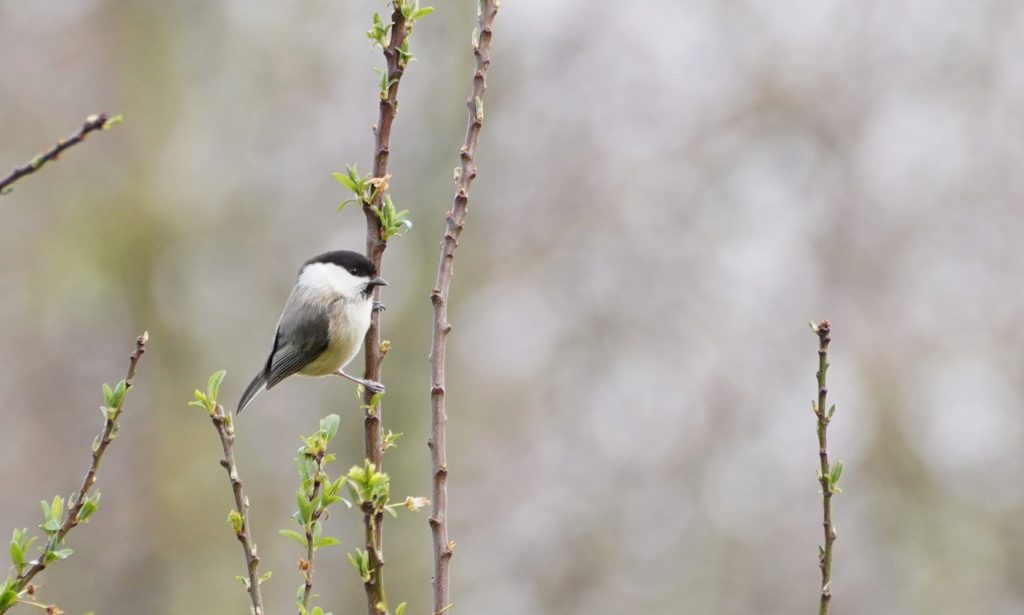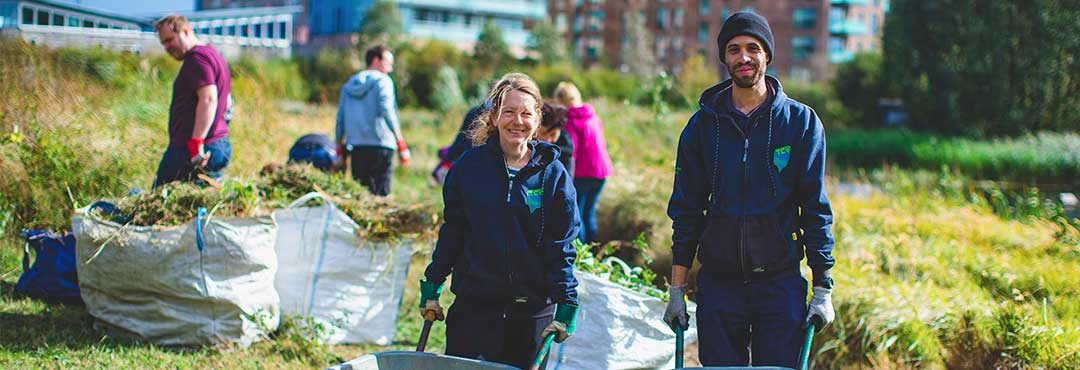Giving Willow Tits a home
Over the past 50 years, the population of Willow Tits across the UK has seen a dramatic 90% decline.
The Conservation Volunteers, together with The Wildlife Trust for Lancashire, Manchester and North Merseyside (LWT) are now working on the Wet Willow Wildlife project in the North West of England, in an effort to support the recovery of the willow tit population.
The project will use volunteers to gather data on the health of willow tits and will work with landowners to help improve their habitats. As well as benefitting willow tits, this work will also help to improve nature corridors and will support other wildlife species which require similar habitats, such as poplar hawk moth, small sallow mining bee and lesser redpoll.
This project is only possible thanks to the kind support of our funders and donations from the public. If you would like to get involved and ensure this project continues, please make a donation and help to protect Willow Tits.
Willow tits need messy, damp scrub and woodland habitats to dig their nesting holes each year, and they thrive in areas containing willow, hawthorn and elder. Making sure this habitat exists, and is connected to similar habitats, is a key priority for the project.
The North West has been selected as it is home to more than 15% of the UK’s willow tit population. The project aims to improve the bird’s chances of survival and gives people the chance to get involved through volunteering and carrying out surveys.
Ruth Crawford, Team Leader at TCV, said “TCV are excited to partner with Lancashire Wildlife Trust on this project to restore and connect important wet willow habitat for threatened wildlife species. The project will take a landscape scale approach to habitat connectivity and highlight the importance of scruffy and damp wet woodlands for species like willow tits. There will be lots of opportunities for people to connect with nature, including citizen science volunteers who will help us map species connectivity across the landscape.’

Willow Tit © Jessica Fung
LWT Head of Landscape Nature Recovery Jo Kennedy said: “The Lancashire Wildlife Trust is delighted to be involved with this Species Survival Fund project which will make a major difference to the survival of multiple species that rely on wet willow woodland habitat, including the threatened willow tit.
“The project will help us to deliver our nature recovery aspirations and provide more people with the benefits of connecting with nature across the region.
“Working with our partner The Conservation Volunteers and local landowners, we’ll be engaging the public in an exciting programme of volunteering opportunities based around wildlife surveying and practical conservation skills as well as fun and interactive events.”
The Wet Willow Wildlife project is part funded by the Government’s Species Survival Fund. The fund was developed by Defra and its Arm’s-Length Bodies. It is being delivered by The National Lottery Heritage Fund in partnership with Natural England and the Environment Agency.
How to get involved
Find out more about volunteering to support our wet willow project across the North West:
Email: manchester@tcv.org.uk

